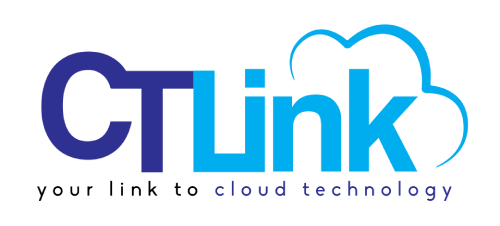Multifactor Authentication
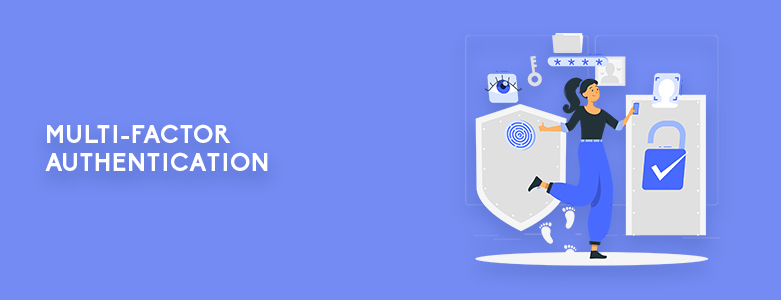
As the world continues navigating remote work, businesses are experiencing more challenges regarding the protection of their employees. This is one of the primary reasons why they turn towards remote cybersecurity solutions. It is a way of not only protecting employee data but also increasing productivity and output by reducing downtimes. One of these solutions is called multifactor authentication. In the Philippines, network security threats are ever prevalent. Recent figures are quite alarming, with organizational costs of data breach in the ASEAN region alone, figuring up to $2.62 million.
While the pandemic remains and remote work setups continue to be the norm, this figure alone should remind businesses about the value of investing in multifactor authentication in the Philippines, as well as other related solutions. With this in mind, nothing is more pressing than the need to collaborate with an IT security solutions company that has the best interests of your company’s safety and security. Fortunately, CT Link is here to provide you with multifactor authentication solutions that allow your users to safely enter sensitive information with reduced risk for data breaches. Read on to learn more.
What Is Multifactor Authentication?
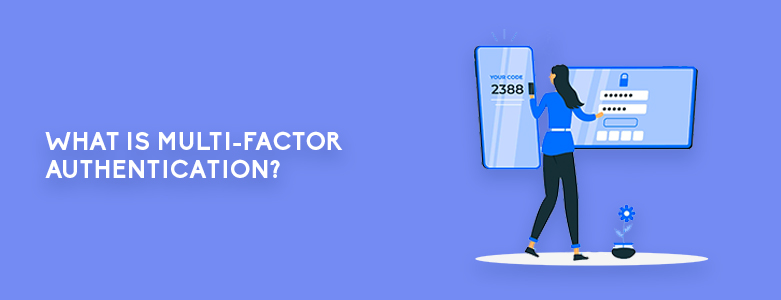
Multifactor authentication in the Philippines is nothing new. In fact, even the everyday individual makes use of this when logging into social media accounts, financing, or banking apps. The purpose of multifactor authentication is to confirm the identity of the user or to essentially “authenticate” if they are the owners of the username and password that they’ve inputted.
Multifactor authentication ultimately aims to provide another layer of defense and security, thus making it near impossible for an unauthorized individual to gain access to accounts and profiles. For example, with multifactor authentication, the user would not only be asked to provide their login credentials (username and password) but they would also be required to input a One-Time Pin (OTP) sent to another device. This form of multi-layered security protects elements, devices, and accounts — even if one of them is compromised or damaged, your business network will be safe from intrusion.
For organizations that work with shared applications, files, and documents over the cloud, investing in multifactor authentication in the Philippines becomes a requirement so that they will be less vulnerable to attacks. By drastically reducing the risk for unwanted data breaches and compromise, multifactor authentication keeps all types of sensitive information — in any way, shape, or form — protected.
Types Of Multifactor Authentication Factors
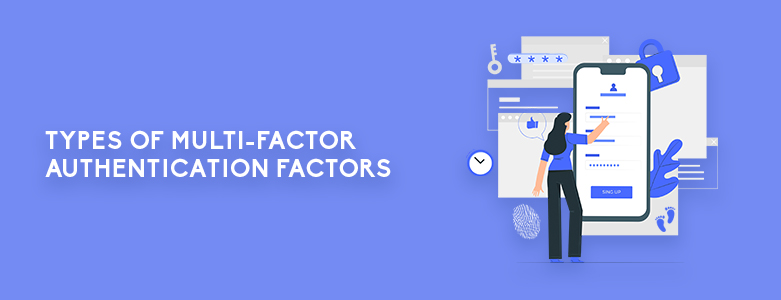
Most types of multifactor authentication in the Philippines depends on three or more types of information that belong to the user themselves. Unlike 2FA which only makes use of two (2) pieces of information and does not require further authentication, MFA depends on more than two factors or two pieces of data. This enables further security, especially when the user/s is attempting to access organizational applications that are connected externally to the on-site network server.
Multifactor authentication in the Philippines can therefore be classified according to the following categories: knowledge, possession, time, and heritage. When implementing this form of identity verification in a company-wide scenario, businesses will have several considerations before choosing which factors to use. Likewise, this will depend on the level of security that they require, the kinds of technology utilized by their customers, and in some cases, even cost.
If your business needs to implement multifactor authentication for added security and regulatory requirements, make sure that you entrust it only to us at CT Link. We can properly deploy and implement this security solution through our various platforms and products included in Microsoft Azure in the Philippines. With a hybrid cloud security solutions provider in the Philippines, you are able to safeguard your cloud network like never before and virtually eliminate losses in productivity and downtimes.
Knowledge
The building blocks for multifactor authentication in the Philippines and other locations can be discovered through the knowledge authentication factor. Knowledge is also commonly referred to as “Something You Know” and is generally straightforward when understood in this context.
For example, a piece of information that the user knows can be a PIN, password, or a personal security question. When setting up an account, most applications will typically include a password strength algorithm that determines how easy or difficult to brute-force the password or PIN is. The string of data for both elements can be a combination of numbers or digits, as chosen and verified by the user.
On the other hand, users may also opt for something more straightforward for multifactor authentication in the Philippines, in the form of a security question. Online platforms determine the quality and safety of their security questions by ensuring that it cannot be guessed/researched, does not alter over the course of time, can be easily remembered by the user, and has a number of possible answers.
Possession
Another facet of multifactor authentication in the Philippines is possession, also referred to as “Something You Have”. A possession can either be a device that is capable of generating access for OTPs or any hardware that can be configured to produce a token. For example, during the process of logging into a social media online account that is MFA-enabled, the token for the login will come from something that the user owns/has — be it a smartphone or email account.
Time
Time simply refers to the limited window of opportunity that the user has in order to authenticate the credentials they’ve inputted. Most of us have probably encountered this when attempting to log into an online account.
Through SMS checks or authentications, for example, the user will receive a message that indicates they have only a certain number of minutes by which they can input the OTP. Any time spent beyond that, and the current session will have already expired, thus requiring the user to prompt the platform to send another OTP.
Heritage
In the context of multifactor authentication in the Philippines, heritage is simply understood as authentication that relies on biometrics identification. Instead of an OTP, the user will be required to demonstrate a fingerprint scan, retinal scan, or voice recognition, according to the capabilities of the hardware. As heritage authentication may often be prone to security risks and failure, they are combined with non-biometric authentication.
Reasons To Use Multifactor Authentication In The Philippines
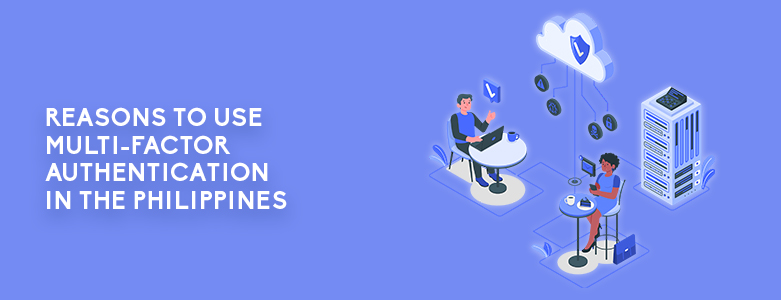
Remote work or not, businesses should also consider multifactor authentication in the Philippines as a crucial strategy in their overall cybersecurity plans. The additional identity verification required in MFA enables a more complex and fail-safe security protocol that will benefit clients, employees, and the organization as a whole.
MFA solutions benefit businesses in a number of ways. Overall, it protects confidential information stored in files, documents, videos, applications, and other cloud-based entities. Especially in institutions that depend on storing and securing customer information, MFA allows a reduction in cases of identity theft, compromised endpoints, security breaches, weak passwords, unsecured remote access, and poor cybersecurity.
Reduce Identity Theft
By investing in multifactor authentication in the Philippines, businesses can virtually avoid any cases of identity theft. Account takeover frauds, phishing attacks, biometric thefts, and the like, are significantly reduced. Employees can be more careful about their online activities. Multifactor authentication enables them to more safely correspond with other entities through emails. Online messaging, or log into various channels and ensure that no one else is trying to compromise their accounts.
Can Be Complemented With Existing IT Security Solutions
Multifactor authentication in the Philippines can also be complemented with existing IT security in order to provide further protection to computing devices. In the age of BYOD, where employees are allowed to “bring their own device”, MFA offers much safer communications over the network.
When combined with other security solutions, like web security, cloud email security, encryption-protected password management, and proper cybersecurity training, employees can better protect themselves against compromised sensitive data.
Strengthens Passwords
Although not directly, partnering with CT Link’s solutions for multifactor authentication in the Philippines will encourage an entire organization to make use of sound and secure password-generation techniques.
This is a crucial habit to practice, since not all employees may be necessarily trained in cybersecurity. But a company that has executed multifactor authentication in its cybersecurity practices can encourage employees and even entire departments to rethink their password/PIN creation strategies.
Secure Remote Access
It’s the job of any software or platform that focuses on providing multifactor authentication in the Philippines to enable secure remote access. It’s not always the case that businesses will be making use of the same IT assets outside remote work. Unless it’s a company-issued laptop or smartphone, the device that each employee uses may differ according to their circumstances.
Fortunately, MFA can also be configured to become more adaptive or risk-based. This authentication method uses contextual information and rules in order to determine what type of authentication should be applied in a given situation. In any case that the user may be accessing from a different device using a public network, MFA makes use of the best type of “check” or verification to ensure the safety of the behavior/access.
Protect Your Business With Multifactor Authentication In The Philippines From CT Link!
CT Link has been the country’s leading Information Technology provider for many years now. Various industries — from healthcare, manufacturing, and banking — have relied on our products and solutions to deliver high-value IT infrastructure and security. Wherever Virtualization, Data Protection, Security, and Cloud Technology are concerned, trust that our team has the right platforms to secure your business’ virtual and non-virtual assets and scale them to new heights.
Ready to improve your business’ IT security with a multi-layered authentication and verification process? Get in touch with us now and discover how your organization can take advantage of our multifactor authentication in the Philippines, secure remote access solutions in the Philippines, and more.
To learn more about improving your business, contact us at 8893-9515 or fill out the form below!
By clicking “Submit,” you agree to our Privacy Policy and consent to the collection and use of your personal information as described therein.
